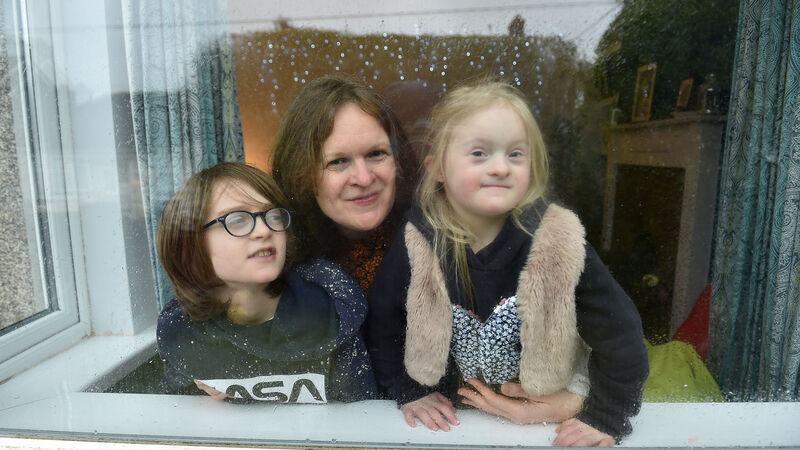'Trying to parent in lockdown is a big ask – it's overwhelming when you are your child's carer too'

Liz Kyte with her six-year-old daughter Evie who has Down syndrome and her 11 -year-old son Matthew, who is on autism spectrum at their home in Glasheen, Cork. Picture: Dan Linehan
On Saturday, Dr Liz Kyte sat down at her computer to write about her family’s experiences of the pandemic at their home in Glasheen, Cork.
“I was interrupted before I had typed the first sentence," she said.










